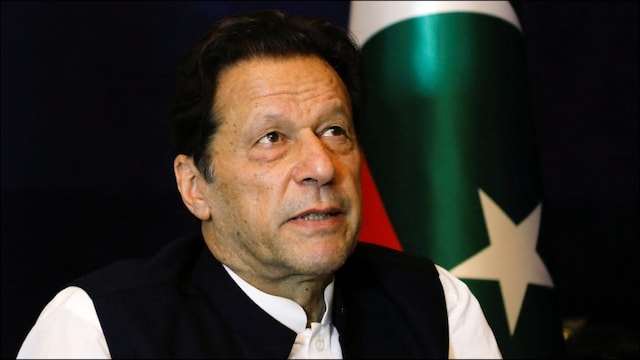Imran Khan: Political Turmoil and Safety Concerns Amid India-Pakistan Tensions
Imran Khan, the former Prime Minister of Pakistan, remains at the center of significant political upheaval. As tensions between India and Pakistan escalate, concerns for Imran Khan's safety have intensified, especially while he is detained in Rawalpindi’s Adiala Jail. This article explores the current challenges he faces—from mounting legal pressures to threats arising from the ongoing conflict between the two neighboring countries.

Imran Khan’s Legal Battles and Continued Detention
Imran Khan has encountered a long series of legal challenges since his removal from office. According to reports, he is currently facing nearly 200 cases, many of which he claims are politically motivated. In January 2025, a court sentenced him to 14 years in prison, and his wife received a seven-year term in a related case.
Despite this crackdown, Khan’s political party, Pakistan Tehreek-e-Insaf (PTI), managed to secure the largest number of seats in the recent elections. However, their efforts to return to power have been thwarted by a coalition government. News18 details the risks facing Imran Khan in jail as his party appeals for his release, citing both the impact of his prolonged detention and the current instability in the region.
Rising India-Pakistan Tensions and Safety Threats
Recent developments have greatly increased concerns about Imran Khan’s wellbeing. As both nations exchange missile and drone strikes, the threat to high-profile prisoners like Khan grows. PTI filed an urgent petition in the Islamabad High Court, stressing the heightened risk of attacks on Adiala Jail. They argue that Khan's safety should be the top priority, especially during this period of escalating hostilities. The Independent reports on PTI’s call for Khan’s immediate release, citing fears of potential drone attacks.
According to party officials, Indian drones have struck deep inside Pakistani territory, even in cities close to the jail where Khan is held. There is acute fear that any escalation could directly threaten Khan’s life. These concerns are amplified by public statements from senior Pakistani politicians, warning of scenarios where the conflict could be used as a cover for more sinister actions.
Political Implications and Khan’s Enduring Influence
Imran Khan’s leadership remains highly influential in Pakistan. Supporters argue that uniting the country requires Khan to be at the forefront, especially in times of crisis. Zulfikar Bukhari, a close aide, stated that national integrity and unity depend on ensuring Khan's safety and role in Pakistani society. As Deccan Herald notes, PTI emphasizes the importance of securing bail for Khan, given health dangers and security threats during ongoing Indo-Pak tensions.
His outspoken stance against India’s actions in Kashmir and his vocal criticism on global platforms have further solidified his position as a central figure, not only in Pakistani politics but also in the broader discourse on South Asian stability.
Conclusion: The Road Ahead for Imran Khan
Imran Khan's future remains uncertain as legal complexities and regional tensions deepen. His situation highlights the intersection of politics, security, and national identity in Pakistan today. As calls for his release grow louder, the world watches closely to see how this chapter in Pakistan’s history unfolds.
For ongoing developments, follow coverage from News18 and The Independent to stay informed.